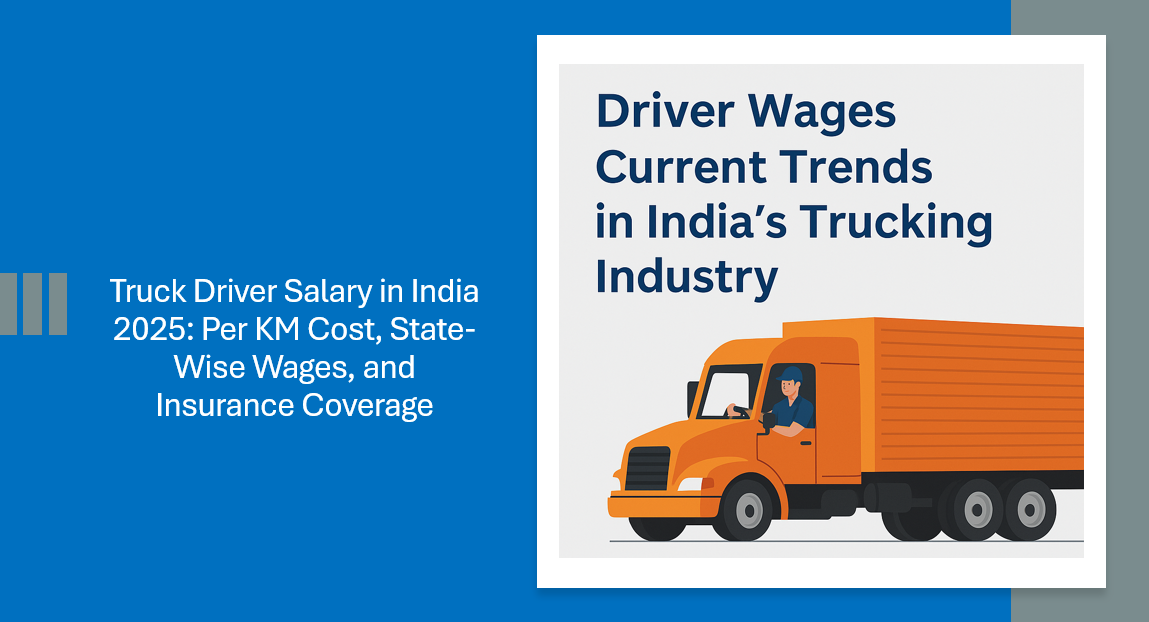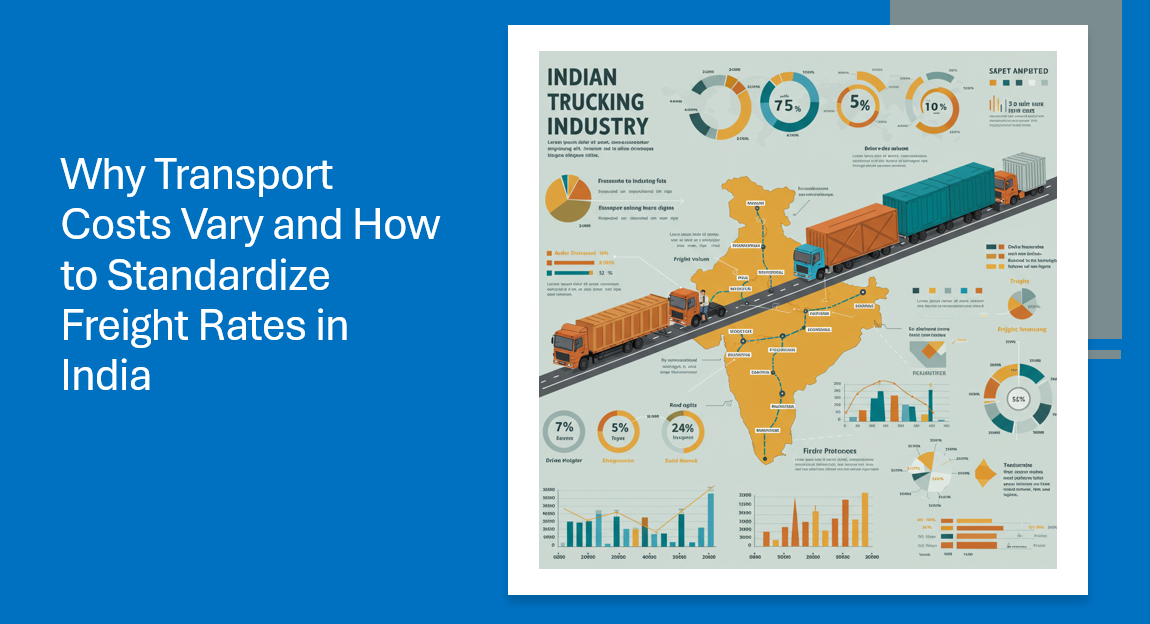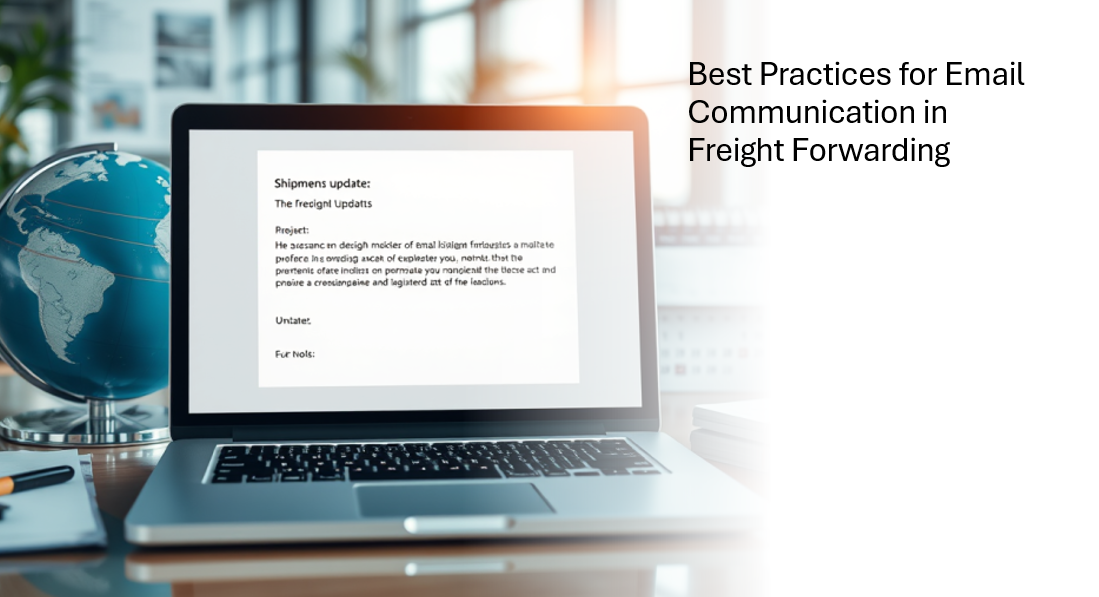In the busy world of Indian transportation and trucking, managing money is just as important as keeping trucks on the road. Three key things play a big part in this: credit period, cash flow, and profit margins. Let’s chat about how these work together and why they matter so much for trucking companies and their customers.
1. Why Credit Period, Cash Flow, and Profit Margins Matter
Credit Period
Think of credit period as a grace period for paying bills. It’s the time customers get to pay for services after they’ve been completed. This directly affects how much money a trucking company has on hand to keep things running smoothly.
Cash Flow
Cash flow is like the fuel that keeps a business running. In trucking, where daily expenses like diesel, driver wages, and truck repairs need immediate payment, having a steady stream of cash is super important.
Profit Margins
This is the difference between what a company earns and what it spends. When payments are delayed or cash isn’t flowing regularly, it can eat into these margins, making it tough for trucking businesses to grow or even stay afloat.
2. Current Payment Practices in the Indian Trucking Industry
The trucking industry in India has a mix of payment methods. Let’s look at some common ones:
Advance and Balance Model
- 80% Advance + 20% on Proof of Delivery (POD): This is popular with freight brokers. It gives trucking companies most of the money upfront for trip expenses, with the rest coming after delivery is confirmed.
Fixed Credit Periods
- 7, 15, or 30 Days: Smaller businesses often prefer these shorter periods. It helps them get paid faster and keeps cash flowing.
- 45, 60, or 90 Days: Bigger companies often use these longer periods. This can be tough for trucking companies who need money quickly to keep operating.
Payment Due Date Calculations
- From Invoice Submission Date: The payment clock starts ticking when the invoice is submitted with all the necessary paperwork.
- From Invoice Generation Date: Payment is due based on when the invoice was created, regardless of when it was sent. This can lead to disagreements if paperwork isn’t shared quickly.
Freight Discount for Early Payment
Some trucking companies offer a small discount if customers pay earlier than the agreed time. It’s like a little thank you for quick payment.
Advance Payments with/without Bank Guarantee
Sometimes, payments are made at different stages of a job. In some cases, a bank guarantee is used as a safety net.
Fuel-Based Payments
This is a bit different – customers pay based on how far the truck traveled and how efficiently it used fuel. Payments might be made through special fuel cards or bank transfers.
3. Impact of Payment Practices on Businesses
For Trucking Companies and Fleet Owners
- Cash Flow Strain: When customers take a long time to pay, it can create a gap between when money is spent and when it comes in. This can be stressful for trucking companies.
- Increased Borrowing Costs: To bridge these payment gaps, companies might need to borrow money, which can be expensive and eat into their profits.
- Operational Disruptions: If payments are inconsistent, it can make it hard to keep trucks in good shape, pay drivers on time, or invest in growing the business.
For Customers
- Vendor Reliability Issues: If trucking companies aren’t paid promptly, they might not be as motivated to provide top-notch service.
- Higher Freight Costs: To make up for longer wait times for payment, trucking companies might charge more for their services.
4. Standardizing Payment Processes for Mutual Benefit
To make things better for everyone, both customers and trucking companies can try these ideas:
Invoice Submission Process
- Digitalization: Using online invoicing can speed things up and reduce mistakes.
- Standard Documentation: Having a clear list of what’s needed for an invoice can avoid back-and-forth communication.
Payment Due Date Calculation
- Unified Approach: Everyone should agree on how to count payment days – either from when the invoice is dated or when it’s submitted.
- Automated Tracking: Using computer systems to keep track of due dates can reduce errors and arguments.
Optimizing Credit Periods
- Segmented Credit Terms: Different payment terms for different types of businesses, keeping in mind government guidelines for small businesses.
- Dynamic Discounting: Offering flexible discounts for early payment, depending on what works for each trucking company.
Technology Adoption
- Digital Payment Platforms: Using online payment systems that connect with accounting software can help everyone see payment status in real-time.
- Blockchain for Transparency: This new technology could make record-keeping more secure and speed up payment matching.
5. The Role of Government Regulations
The Indian government says small businesses should be paid within 45 days, but this isn’t always followed. Companies can do better by:
- Implementing Vendor Portals: Creating online spaces where trucking companies can check payment status and solve issues quickly.
- Regular Audits: Checking regularly to make sure payment terms are being followed and finding ways to improve.
Conclusion
Managing money well is super important in the trucking industry. By agreeing on fair payment terms, making invoicing easier, and using new technologies, both trucking companies and their customers can benefit. Working together, with clear and fair practices, can help everyone make more money and build stronger partnerships in the long run.
Stay updated with LOGIXMINDZ! Subscribe to our NEWSLETTER for the latest insights and join our LinkedIn group for even more valuable content







Leave a Reply